|
Key West citizens gathered to hear from Dr. Aaron Adams of BTT, Jason Wolfe from Mote,
Channel dredging has been proposed in Key West to allow larger cruise ships to enter the harbor A Reconnaissance Report conducted by the Army Corps of Engineers in 2010 indicated the project would produce “significant economic benefits” but also “significant environmental concerns” FKNMS has authority to regulate, and there are a number of regulations in place that prevent this type of dredging because of its threat to endangered coral in the area
There are a number of environmental concerns with the project, particularly about destruction of coral
50% of marine life in the Keys depend on coral reefs at some point in their lives, and The Keys have lost as much as 90% of their indigenous coral since the 1970s
“Healthy habitats equal health fisheries”-habitat loss impacts fish abundance in a place where the flats fishery is worth $465 million
Key West citizens will vote October 1st, 2013 on whether or not to pursue a feasibility study The Army would not pursue a study if it were clear FKNMS wouldn’t support it
While only Key West citizens can vote, those that visit Key West as tourists can make their voices heard by writing to newspapers in Key West and contacting the hotels where they stay BTT is working with guides in the area to assist in their opposition to the proposal, and we need your support |
GET THE FACTS: PROPOSED DREDGING IN KEY WEST
Key West citizens packed the house at Tropic Cinema Thursday night to hear a diverse lineup of speakers discuss all aspects of the proposed channel widening, including relevant regulations, the economics of the Sanctuary, coral and coral restoration efforts as well as information about the Keys fishery. Speakers included Dr. Aaron Adams from Bonefish and Tarpon Trust, Jason Wolfe from Mote Marine Laboratory, Sean Morton from Florida Keys National Marine Sanctuary (FKNMS) and Eric Bush from The U.S. Army Corps of Engineers (USACE). This issue has been the topic of much heated discussion in Key West lately, and this town hall meeting was an opportunity for interested citizens to get the facts and ask the experts questions about the proposed changes. What is being proposed in Key West? The broad issue under discussion is whether or not to widen (through dredging) the Key West Channel to accommodate larger cruise ships. At the request of the federal government, the Army Corps of Engineers conducted a Reconnaissance Report in November 2010, which indicated that the channel would need to be widened 150 feet for a mile long stretch. According to Bush, the report’s findings indicated the project would produce “likely significant economic benefits” but also indicated there were “significant environmental concerns associated with it.” Although there are currently only a handful of cruise ships that can’t enter the channel, Bush noted that the study take into account the projected economic benefits over a 50-year period, and provides detailed analysis on cargo and cruise traffic to calculate transportation cost savings in that time frame. Sean Morton pointed out that Florida Keys National Marine Sanctuary has the authority to regulate in this area and requires “federal agencies whose actions may cause destruction of resources to consult with FKNMS before taking the action.” He also noted that there are several current regulations in place that prohibit dredging and drilling and alteration of the seabed, though there is a permit system in place to allow people to conduct prohibited activities. Because of the environmental concerns, including the threat to seven endangered coral species in the area, Morton made it clear that FKNMS didn’t see a circumstance under which they would allow an exemption: “we just don’t see a permit category for this to occur under…it would likely require a change in the regulations.” What are the Concerns? All of the speakers raised concerns about the environmental impact a dredging project like this could have. Jason Wolfe from Mote said, “50% of marine life in the Keys depends on coral reefs at some point in their life cycle, or benefit from the coral reef habitat…since the 1970s we have lost as much as 90% of our indigenous coral coverage in the Florida Keys, including some species that have declined 97%.” Though there are a number of recovery efforts underway, including innovative “coral nurseries”, these reefs need to be protected to prevent further damage. Wolfe concluded that, “the dredging areas contain corals that will be affected”. Aaron Adams from Bonefish and Tarpon Trust expanded on the concerns expressed by others, adding that, “healthy habitats equal health fisheries…the amount of habitat influences fish abundance and habitat fragmentation causes significant ecological impacts.” Despite Bush’s contention that the positive economic impacts from such a project would be significant, others pointed out that the economic losses from declining reefs and fisheries would be significant as well. According to a recent Bonefish and Tarpon Trust study, the economic impact of the Florida Keys flats fishery is $465 million per year and is thus a huge contributor to the Keys economy. The location of the Key West ship channel makes it a special cause of concern since it is in an important location along the migratory pathway of tarpon. Thus, there is the real chance that the dredging operation and the resulting change in habitat would disturb the tarpon migration and negatively impact the fishery. What is the next step in the process? The next step, and the issue currently at hand, is whether to pursue a feasibility study, which would be conducted by The Army Corps of Engineers at the request of Congress. Bush noted several times that conducting a feasibility study did not necessarily mean that the project would be a go. He also pointed out that, “the Army would not push forward and seek budget for a project that can’t be supported by another federal agency [FKNMS].” The issue of whether or not to pursue the feasibility study has been left up to the citizens of Key West, who will be voting on the referendum on October 1st, 2013. The general consensus from most of the speakers and the audience was that the potential environmental and economic losses of the proposed dredging project far outweigh the potential benefits, and that the project could wreak havoc on the vitally important ecosystem and fisheries in the area. Although only Key West citizens can vote in the referendum, those that visit Key West as tourists can make their voices heard. Write letters to the editor of the Key West newspapers about how such a project would influence your decision to visit Key West, and contact the hotels where you stay to let them know your concerns. Bonefish & Tarpon Trust is working with flats fishing guides in the Key West area to assist in their opposition to this proposal. BTT has also worked with fishing guides to map the important flats fishing areas in the Lower Keys, which shows how changes to the tarpon migration would impact the fishery. This is yet another real-world example of how BTT’s science-based efforts can be critical to protecting the fishery and habitats. To continue doing this work, we need your support. Become a member of BTT, or if you are a member consider increasing your level of support. This is an important issue for the Florida Keys, and there are others on the horizon, so our diligence is essential and we need your support. |



